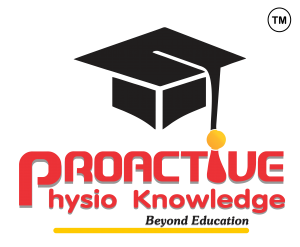
Dong-Kyu Lee and colleagues conducted a study on traditional curl- up and curl-up with neck flexion restriction.
Their studies found that traditional curl-up exercise significantly increased the activity of SCM (sternocleido mastoid), whereas, curl-up with neck flexion restriction considerably reduced activation of SCM.
So regular curl-up exercise will over activate the SCM and as we know over active SCM may cause the neck pain. And also person with neck pain may also feel more pain after traditional curl-up exercise.
Method to restrict neck flexion while curl-up
In hook lying (starting curl-up position), ask the patient to move to chin tuck position and ‘lightly touch your right hand on your mandible’ to provide tectile cue for neck flexion restriction during curl-up.
Dong-Kyu Lee and colleagues also found that activity of Rectus abdominis and external oblique was significantly increased during curl-up with neck flexion restriction compare to traditional curl-up.
So,Traditional curl-up can over activate SCM and thereby may cause • Neck pain• Headache• Giddiness• Back pain as protruded head in long run affects posture of whole spine
Take home message
Curl-up should always be done with neck flexion restriction.Which reduces SCM over activation and thereby reducing chances of neck pain
- It activates Rectus abdominus and External oblique more which is our goal of curl-up
- Reduces the chances of further increase in pain in neck pain patients.
- Neck flexion restriction is recommended to prevent excessive activation of the superficial cervical flexors during the curl-up exercise.
Referances
Effect of neck flexion restriction on sternocleidomastoid and abdominal muscle activity during curl-up exercises Dong-Kyu Lee, PT, PhD, Dong-Chul Moon, PT, PhD, and Ki-HoonHong, OT, MSc


